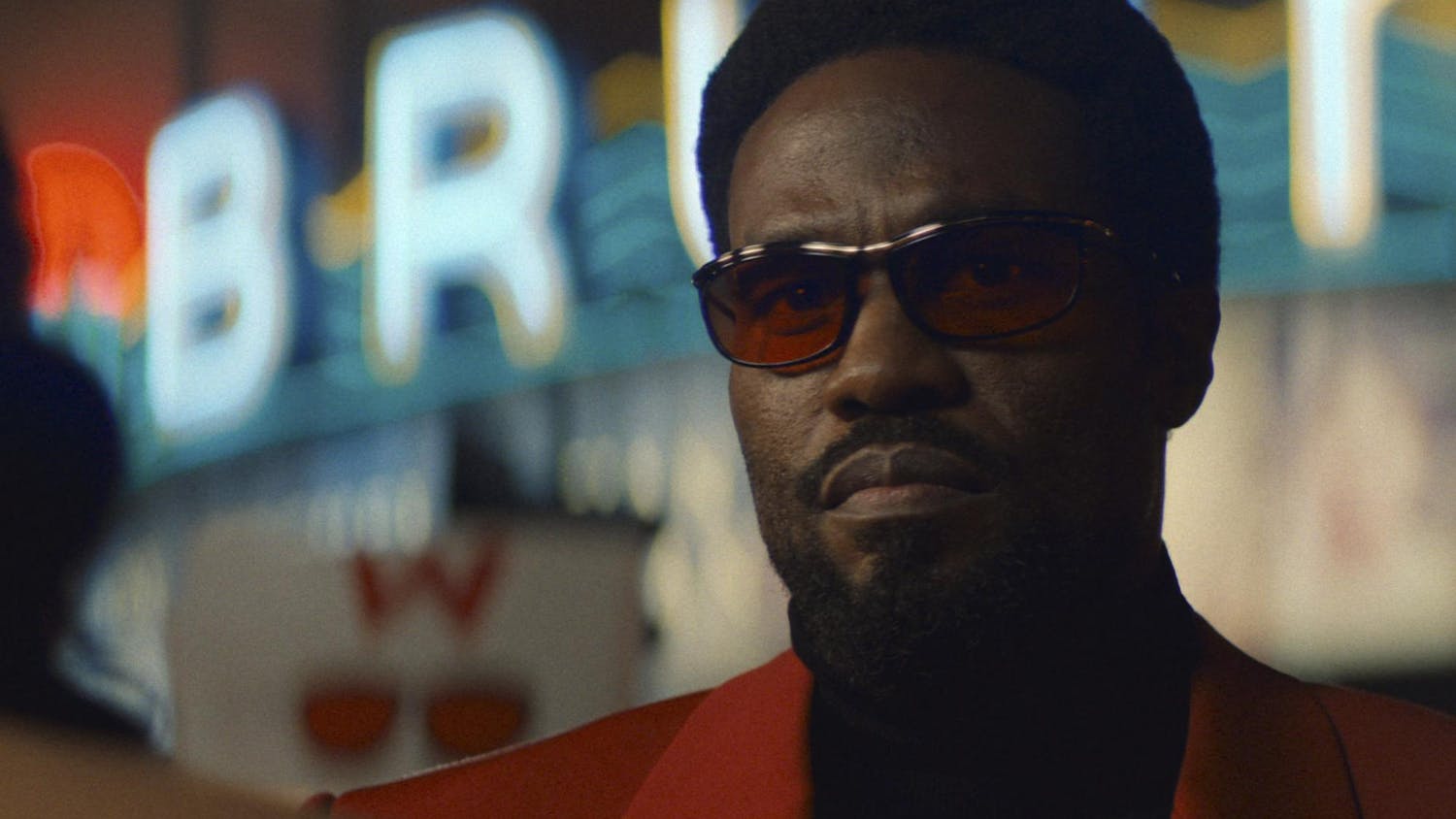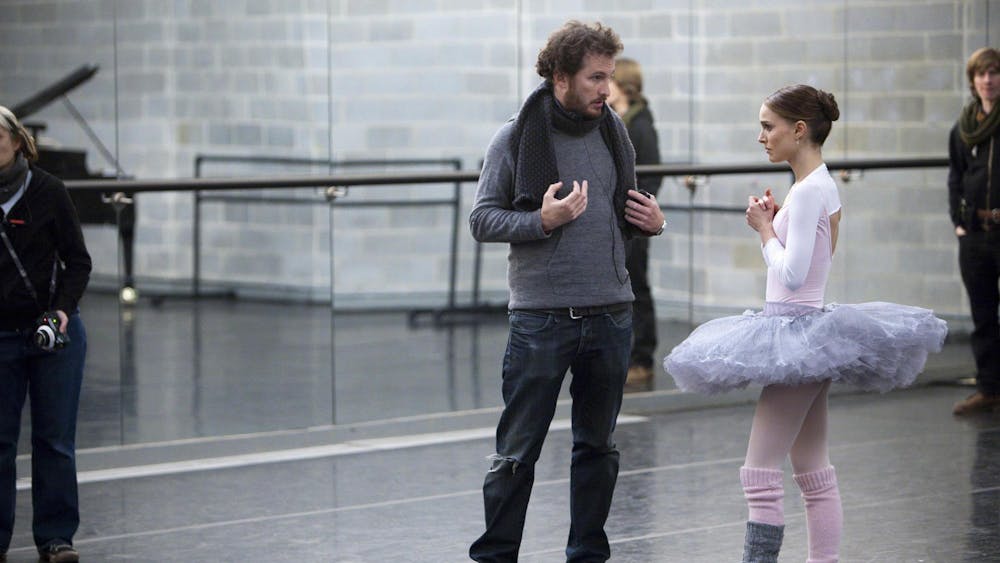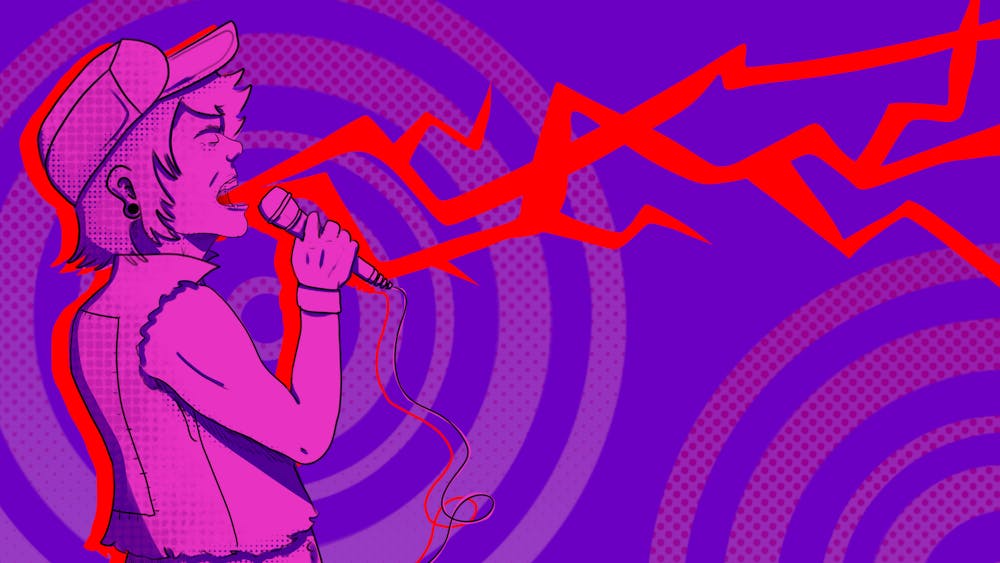Talking during movies is seen as rude or inappropriate. But what people don’t realize is that talking at the screen has served as a form of resistance to hegemonies since screens have existed. Various films and writers exist that follow this phenomena through their work.
In the John Huston film, “Heaven Knows, Mr. Allison,” one of the extras is played by the uncle of experimental filmmaker Richard Fung. In Fung’s 2002 film “Islands,” which focuses on family, identity and the Caribbean, Fung appropriates the Huston film through interrupting text in order to attempt to locate his uncle in the older film.
Despite these attempts, Fung makes the group shots frenetic and wide, full of chaotic extras in war scenes so that there is no way to locate any singular person. “Islands” then becomes an interruption to the Hollywood narrative. It talks back. The film discusses how talking at the screen is an important tactic in resistance in Caribbean cinemas, which interrupts the whiteness of typical Hollywood.
In her book “Talking Back: Thinking Feminist, Thinking Black,” bell hooks, a feminist theorist who does not capitalize her name, outlines how speech can allow for an opportunity for resistance.
In hook’s essay “The Oppositional Gaze: Black Female Spectators,” she charts a childhood full of looking — watching movies, watching television, looking at media and representations, looking at offensive brands such as “Amos ’n’ Andy” but bringing a “critical spectatorship”.
Thus the joy of media for hooks is not in the looking but in the critical discussion. She continues to chart the specifics of looking for black women through an oppositional gaze, white womanhood and the phallocentric gaze.
If we apply this to cinema, to physical spaces, the act of talking at the screen becomes an act of opposition: a refusal to lie down and take it.
Images produce large amounts of power through the message they imply, but through talking back and through critical conversation, an offensive or dark work of film can turn into a whole other cultural product, one worth dissecting and critiquing.
As a white nonbinary person, I like to talk at movies and media in theaters or even during Netflix binging that portrays gender as easy to read or simple to decode.
I like to ask where the queer person is and, if they are there, why they are readable as queer instead of giving the viewer a concrete way to understand their queerness. Like a sex scene. Or them giving us their pronouns or their orientation.
My lesbian friend likes to ask the screen why lesbians die all the time and why Callie from “Grey’s Anatomy” doesn’t get to say on screen that she is a bisexual. There are endless examples of this. And it’s different for different groups and different levels of privilege.
The act of talking back to the screen is one of immense importance for marginalized groups. Most of us have some form of privilege and should do our part to respect and understand while talking back to screens, especially in public spaces, might not be considered “respectable” especially by straight cisgender white men, it is an act for those who do it of liberation and life.
When we take time to interrupt a sexist film and call it out or a racist trope and yell back, we are reacting to something deeply embedded in our culture in a concrete way.
Both literal talking back at screens and group discussions that are critical, reflexive and aware are powerful ways to resist capitalism and whiteness. Put bluntly, just let folks talk during movies.
jkrathwo@umail.iu.edu
@lordjoshuabyron





